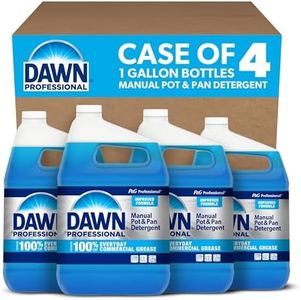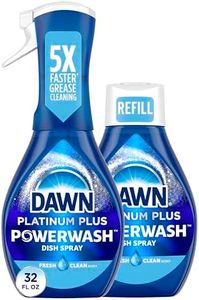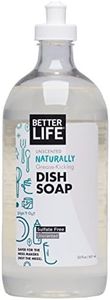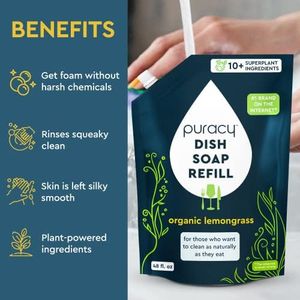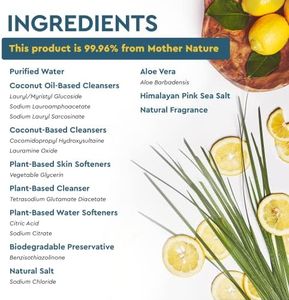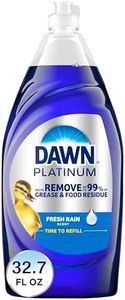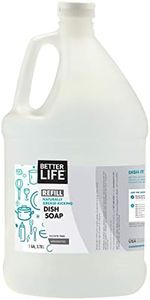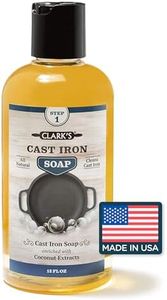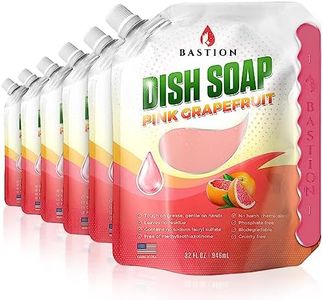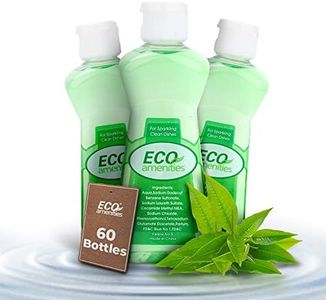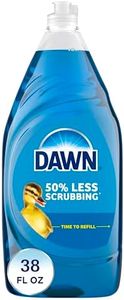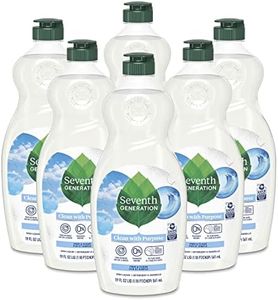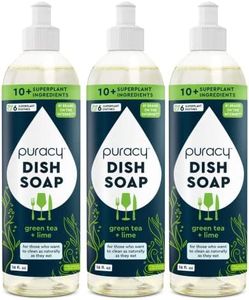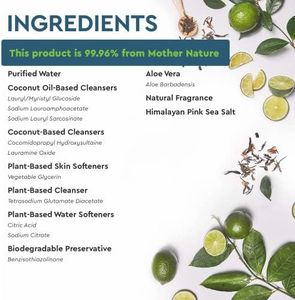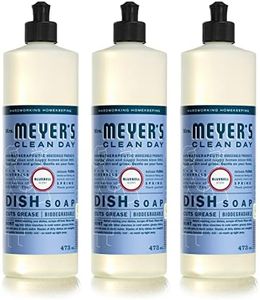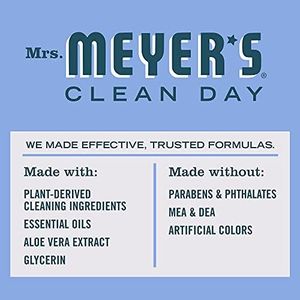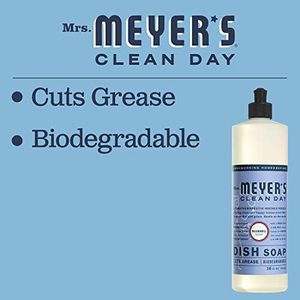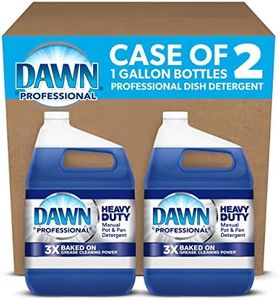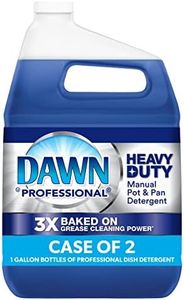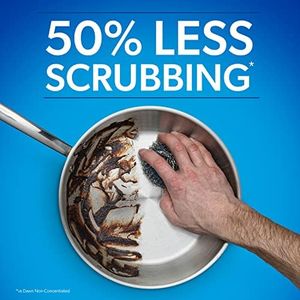10 Best Dish Soaps 2025 in the United States
Winner
P&G PROFESSIONAL Dishwashing Liquid Soap Detergent,Bulk Degreaser Removes Greasy Foods from Pots,Pans & Dishes in Commercial Restaurant Kitchens, Regular Scent,1 Gallon(Pack of 4)(Packaging May Vary)
Dawn Professional Pot and Pan Detergent is specially formulated to tackle greasy pots, pans, and utensils, offering strong cleaning power with long-lasting suds. The product claims to clean 58% more greasy items per sink compared to its non-concentrated version, making it a highly efficient option for heavy-duty cleaning needs.
Most important from
2024 reviews
Puracy Natural Dish Soap Refill, Skin-Softening Plant-Based Liquid Dishwashing Detergent Soap, Clean-Rinsing Water-Sheeting Formula, (Organic Lemongrass 48 Oz)
Puracy Natural Dish Soap Refill offers a plant-based formula that is designed for effective dish cleaning while being gentle on the skin. With 99.41% of its ingredients derived from plants, it avoids harsh chemicals like sulfates, triclosan, and parabens. This makes it an excellent option for those with sensitive skin or anyone wanting to avoid chemical exposure. The soap has a pleasant lemongrass scent, which adds a refreshing touch to your dishwashing routine.
Most important from
929 reviews
Dawn Powerwash Spray, Dish Soap, Dishwashing Liquid, Cleaning Supplies, Fresh, 1 Starter Kit + 1 Refill, 32 Fl Oz
Dawn Powerwash Spray offers impressive cleaning power, able to remove 99% of grease and grime in half the time compared to traditional Dawn non-concentrated dish soap. Its formula includes three cleaning boosters, making it 5 times faster at cutting through grease. This efficiency is beneficial for users looking to save time on dishwashing.
Most important from
105352 reviews
Top 10 Best Dish Soaps 2025 in the United States
Winner
10.0 score
P&G PROFESSIONAL Dishwashing Liquid Soap Detergent,Bulk Degreaser Removes Greasy Foods from Pots,Pans & Dishes in Commercial Restaurant Kitchens, Regular Scent,1 Gallon(Pack of 4)(Packaging May Vary)
P&G PROFESSIONAL Dishwashing Liquid Soap Detergent,Bulk Degreaser Removes Greasy Foods from Pots,Pans & Dishes in Commercial Restaurant Kitchens, Regular Scent,1 Gallon(Pack of 4)(Packaging May Vary)
Chosen by 1469 this week
Puracy Natural Dish Soap Refill, Skin-Softening Plant-Based Liquid Dishwashing Detergent Soap, Clean-Rinsing Water-Sheeting Formula, (Organic Lemongrass 48 Oz)
Puracy Natural Dish Soap Refill, Skin-Softening Plant-Based Liquid Dishwashing Detergent Soap, Clean-Rinsing Water-Sheeting Formula, (Organic Lemongrass 48 Oz)
Dawn Powerwash Spray, Dish Soap, Dishwashing Liquid, Cleaning Supplies, Fresh, 1 Starter Kit + 1 Refill, 32 Fl Oz
Dawn Powerwash Spray, Dish Soap, Dishwashing Liquid, Cleaning Supplies, Fresh, 1 Starter Kit + 1 Refill, 32 Fl Oz
Seventh Generation Dish Soap Liquid, Fragrance Free, 19 fl oz (Pack of 6)
Seventh Generation Dish Soap Liquid, Fragrance Free, 19 fl oz (Pack of 6)
Our technology thoroughly searches through the online shopping world, reviewing hundreds of sites. We then process and analyze this information, updating in real-time to bring you the latest top-rated products. This way, you always get the best and most current options available.

